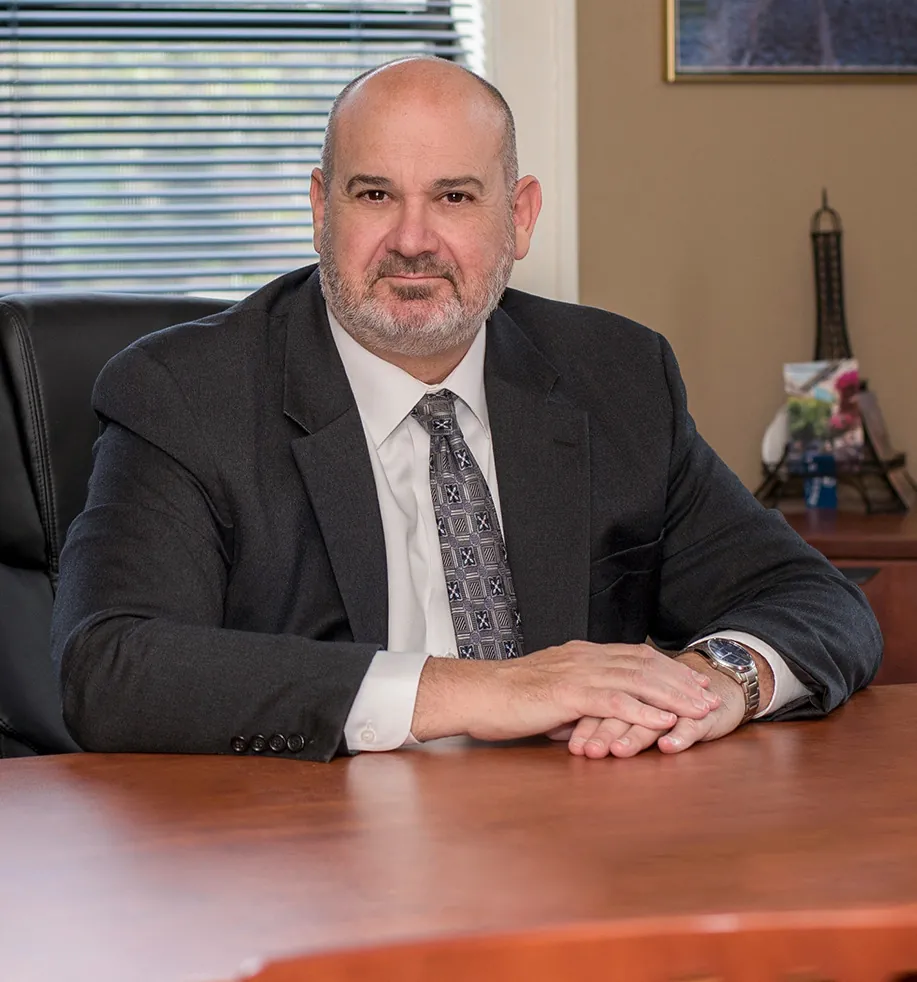Deferred Prosecution Program in Alachua County
The State Attorney’s Office for the Eighth Judicial Circuit which includes Alachua County has created a deferred prosecution program for individuals charged with certain types of criminal offenses. Other counties in the Eight Judicial Circuit that offer deferred prosecution programs include Baker County, Bradford County, Gilchrist County, Levy County, and Union County, FL.
If you have been charged with a criminal offense in Alachua County, or one of the other counties in the Eighth Judicial Circuit, then contact an experienced criminal defense attorney with the Galigani Law Firm in Gainesville, FL. Dean Galigani fights aggressively to protect his clients from the direct and indirect consequences of an arrest and prosecution.
Definition Legal Terms used in the Deferred Prosecution Program
The deferred prosecution program is defined as a contract between the person accused of the criminal offense (often negotiated with the help of their criminal defense attorney) and the State Attorney’s Office. Under the terms of the contract, if the conditions are successfully completed and the individual has no other law violations during the specified period then the charges are dropped.
The criminal defense attorney for the person accused is often in the best position to fight for permission to enter deferred prosecution program and to negotiate the terms required to successfully complete the agreement. The terms of the deferred prosecution agreement that are negotiated typically require the person to be supervised for a certain period of time during which the individual must successfully complete certain requirements set out in the contract.
Types of Deferred Prosecution or Intervention Programs in Florida
These types of deferred prosecution agreements are also common in juvenile court and in felony drug courts throughout Florida. Other jurisdictions call such agreement pre-trial intervention programs for felony charges (PTI) or misdemeanor intervention program (MIP) for misdemeanor charges.
Several State Attorney’s Offices throughout Florida have even created deferred prosecution programs for DUI cases. In these programs, the charges for Driving Under the Influence of alcohol or drugs (DUI) are ultimately dropped down to a reckless driving if the individual successfully completes the program.
Problems with Deferred Prosecution Programs
The pre-trial intervention programs or deferred prosecution agreements are popular because it permits an individual to avoid certain collateral consequences that often come with entering a “guilty” or “no contest” plea in court. Despite the popularity of such programs, entering a deferred prosecution agreement is not for everyone.
For certain types of professionals, a deferred prosecution program carries with it many of the same collateral consequences as a conviction. Educators including public and private school teachers, members of the military, state and federal law enforcement officers, pilots, and heath care professionals such as nurses and doctors can face certain licensing issues after an arrest or “notice to appear” on criminal charges is issued.
Even high school students and college or graduate students face certain collateral consequences from a criminal arrest that are not necessarily avoided by entering a deferred prosecution agreement.
What happens if I complete all the terms of the deferred prosecution program?
If the specified conditions are met and proof is provided to the State Attorney’s Office and the individual has no further law violations within the time specified, then the State Attorney’s office will dismiss the charged against the individual. Once the charges are dismissed by the State Attorney’s Office, the person can begin the process to petition the court to expunge the criminal record if the person is otherwise eligible.
What happens if I am unable to complete all of the terms of the Deferred Prosecution Program?
If the person enters into a deferred prosecution contract with the State Attorneys Office and then fails to complete the required terms within the specified period, then the State Attorney’s Office will not dismiss the charges. Instead, the State Attorney’s Office will resume the prosecution where it left off. The prosecution is resumed when the prosecutor asks the clerk of court to set a new court date and send notice to the person accused.
If the person fails to appear in court then a warrant for his or her arrest is issued, sometimes the failure to appear warrant is called a “capius.” Many people agree to deferred prosecution and then seek out the services of a criminal defense attorney after they violate the terms of the deferred prosecution program.
Although generally, the State Attorney’s Office will not agree to extend the time to complete the program, a criminal defense attorney is often in the best position to talk with the State Attorney’s Office about avoiding a violation or coming back into compliance.
What types of special conditions can be required by the Deferred Prosecution Contract?
Special conditions often of the deferred prosecution program can including any of the following:
- Paying $50 towards cost of prosecution;
- Community service hours (or often those hours can be bought out through a charitable contribution);
- Substance Abuse Evaluation and any recommended follow-up treatment if any;
- Anger Management (typically an eight-hour class);
- Milepost Class (one day class for persons charged with shoplifting and/or certain drug charges); and/or
- Mental Health Evaluation and any recommended follow-up treatment if any,
For individuals that live outside of the jurisdiction of the Eighth Judicial Circuit, including individuals who live out of state, comparable programs in your home town can be used. Any community service hours must be set up through Court Services by calling (352) 338-7390.
How long do I have to complete the special conditions of the Deferred Prosecution program?
The contract to defer prosecution will specify the length of time you have to complete all special conditions. Generally, the State Attorney’s Office requires proof of compliance at least 30 days before the termination date of the deferred prosecution period. So if you have a six (6) month period of deferred prosecution then you must provide proof of successful completion of all conditions within the first five (5) months.
Additional Resources for Information on Deferred Prosecutions
Deferred Prosecution Program for the Eighth Judicial Circuit – Read more from the State Attorney’s Office for the Eighth Judicial Circuit on its program to defer prosecution and ultimately dismiss charges for certain juvenile crimes, DUI cases, misdemeanor offenses such as shoplifting or possession of marijuana, to felony drug charges in drug court.
Finding a Qualified Criminal Defense Attorney
Contact Dean Galigani at (352) 375-0812 to discuss your pending criminal charges in Gainesville, Alachua County or any of the other counties in the Eighth Judicial Circuit including Union County, Levy County, Gilchrist County, Bradford County, and Baker County, Florida.
Dean Galigani fights to aggressively defend his clients after an arrest for misdemeanor or felony criminal charges. Call today for a consultation (352) 375-0812.







